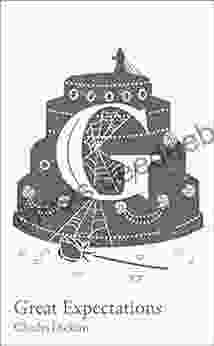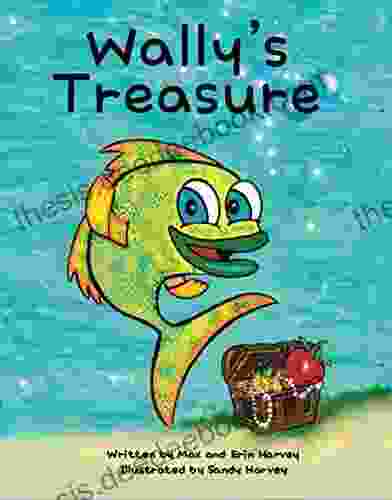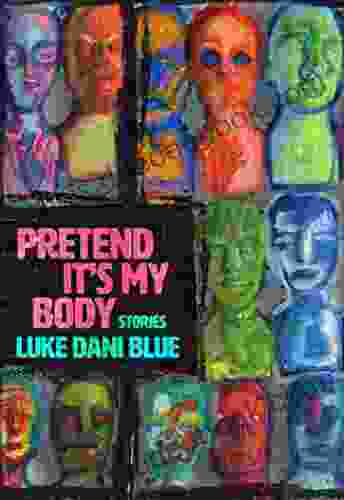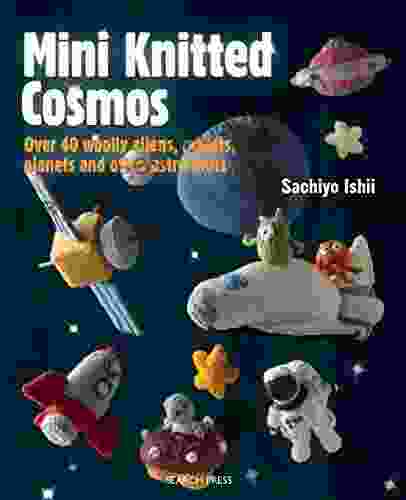The Cultural History of Imagination in the Mind and on the Stage

Imagination is a fundamental human capacity that allows us to create new ideas, solve problems, and experience the world in new ways. It is also a key part of our cultural heritage, as it has been expressed in art, literature, music, and theater for centuries.
4.5 out of 5
| Language | : | English |
| File size | : | 18059 KB |
| Text-to-Speech | : | Enabled |
| Screen Reader | : | Supported |
| Enhanced typesetting | : | Enabled |
| Word Wise | : | Enabled |
| Print length | : | 468 pages |
The history of imagination can be traced back to the earliest days of human civilization. In ancient Greece, philosophers such as Plato and Aristotle believed that imagination was a divine gift that allowed humans to connect with the gods. In the Middle Ages, imagination was seen as a dangerous force that could lead to heresy and witchcraft. However, during the Renaissance, imagination was重新发现了as a powerful tool for creativity and self-expression.
In the 19th century, the Romantic movement celebrated imagination as a source of inspiration and truth. Romantic poets such as William Wordsworth and Samuel Taylor Coleridge believed that imagination was the key to unlocking the mysteries of the human heart. In the 20th century, imagination became a central theme in psychology, as psychologists such as Carl Jung and Sigmund Freud explored its role in the development of personality and the unconscious mind.
Today, imagination is more important than ever. In a world that is constantly changing, we need to be able to imagine new possibilities and solutions. Imagination is also essential for our well-being, as it allows us to escape from the everyday world and explore our dreams and desires.
Imagination in the Mind
Imagination is a complex process that involves many different parts of the brain. When we imagine something, we are activating the same neural networks that we use when we experience it in real life. This allows us to create mental images, sounds, smells, tastes, and sensations. We can also use our imagination to create new ideas, solve problems, and plan for the future.
Imagination is not just a passive process. It is an active process that requires effort and concentration. When we imagine something, we are using our working memory to hold the image in our mind. We are also using our executive function skills to control our attention and focus on the task at hand.
Imagination is a powerful tool that can be used for good or for evil. It can be used to create beautiful works of art, solve important problems, and make the world a better place. However, it can also be used to spread fear, hatred, and violence. It is important to use our imagination wisely and to be aware of the potential consequences of our thoughts and actions.
Imagination on the Stage
Imagination is also a key part of theater. Actors use their imagination to create characters, worlds, and stories. They must be able to imagine what their characters are thinking and feeling, and they must be able to convey these emotions to the audience. Imagination is also essential for directors, who must envision the entire production and guide the actors in their performances.
Theater is a powerful medium for exploring the human imagination. It allows us to see the world through the eyes of others and to experience different cultures and perspectives. It can also help us to understand ourselves better and to develop our own imaginations.
Here are some examples of how imagination is used on the stage:
- In Shakespeare's play Hamlet, the title character imagines the ghost of his father. This imagination helps him to understand the truth about his father's death and to avenge his murder.
- In the musical The Phantom of the Opera, the Phantom imagines a beautiful woman named Christine Daaé. This imagination inspires him to write music and to create a world where he can be with her.
- In the play Waiting for Godot, two characters, Vladimir and Estragon, imagine a variety of scenarios while they wait for Godot. These imaginations help them to pass the time and to cope with their boredom.
These are just a few examples of how imagination is used on the stage. Imagination is a powerful tool that can be used to create amazing works of art. It is also a tool that can help us to understand ourselves and the world around us better.
Imagination is a fundamental human capacity that is essential for our creativity, problem-solving, and well-being. It is also a key part of our cultural heritage, as it has been expressed in art, literature, music, and theater for centuries. By understanding the history of imagination, we can better appreciate its importance and use it to make the world a better place.
4.5 out of 5
| Language | : | English |
| File size | : | 18059 KB |
| Text-to-Speech | : | Enabled |
| Screen Reader | : | Supported |
| Enhanced typesetting | : | Enabled |
| Word Wise | : | Enabled |
| Print length | : | 468 pages |
Do you want to contribute by writing guest posts on this blog?
Please contact us and send us a resume of previous articles that you have written.
 Novel
Novel Page
Page Text
Text Genre
Genre Paperback
Paperback E-book
E-book Magazine
Magazine Paragraph
Paragraph Sentence
Sentence Bookmark
Bookmark Shelf
Shelf Glossary
Glossary Bibliography
Bibliography Preface
Preface Synopsis
Synopsis Annotation
Annotation Codex
Codex Tome
Tome Classics
Classics Biography
Biography Autobiography
Autobiography Encyclopedia
Encyclopedia Dictionary
Dictionary Thesaurus
Thesaurus Narrator
Narrator Character
Character Librarian
Librarian Scholarly
Scholarly Lending
Lending Reserve
Reserve Academic
Academic Journals
Journals Rare Books
Rare Books Special Collections
Special Collections Literacy
Literacy Dissertation
Dissertation Storytelling
Storytelling Reading List
Reading List Theory
Theory Textbooks
Textbooks David Brian Robertson
David Brian Robertson Donald Sheneberger
Donald Sheneberger Seanegan P Sculley
Seanegan P Sculley Michael Fitterling
Michael Fitterling Lolly Brown
Lolly Brown Bianca Marais
Bianca Marais Mary Lou Roberts
Mary Lou Roberts Emma Sibley
Emma Sibley Cheryl Blackford
Cheryl Blackford Anne Boyer
Anne Boyer A A Gill
A A Gill Richard W Soderberg
Richard W Soderberg Richard A Billows
Richard A Billows Giuseppe Garibaldi
Giuseppe Garibaldi Linda Bolton
Linda Bolton Jason Fruchter
Jason Fruchter Casi Mclean
Casi Mclean Tom Hickman
Tom Hickman Audrey Muller
Audrey Muller Ashraf Badawi
Ashraf Badawi
Light bulbAdvertise smarter! Our strategic ad space ensures maximum exposure. Reserve your spot today!

 Tennessee Williams15th International Conference on Information and Communication Systems (ICISS...
Tennessee Williams15th International Conference on Information and Communication Systems (ICISS... E.M. ForsterFollow ·18.3k
E.M. ForsterFollow ·18.3k Oliver FosterFollow ·5.8k
Oliver FosterFollow ·5.8k Oscar WildeFollow ·2.9k
Oscar WildeFollow ·2.9k Harvey HughesFollow ·9.9k
Harvey HughesFollow ·9.9k Jean BlairFollow ·9.4k
Jean BlairFollow ·9.4k Max TurnerFollow ·9.4k
Max TurnerFollow ·9.4k Donovan CarterFollow ·3.8k
Donovan CarterFollow ·3.8k Scott ParkerFollow ·13.5k
Scott ParkerFollow ·13.5k

 Russell Mitchell
Russell MitchellGCSE Set Text Student Edition: Collins Classroom Classics...
The GCSE Set Text Student Edition: Collins...

 Ralph Turner
Ralph TurnerSix Sigma Lean Green Belt Training for Beginners with...
What is Six...

 Travis Foster
Travis Foster10 Life-Changing Lessons I Learned When I Was Single
Being single can...

 Jermaine Powell
Jermaine PowellOne Great Insight Is Worth a Thousand Good Ideas
In the competitive and...
4.5 out of 5
| Language | : | English |
| File size | : | 18059 KB |
| Text-to-Speech | : | Enabled |
| Screen Reader | : | Supported |
| Enhanced typesetting | : | Enabled |
| Word Wise | : | Enabled |
| Print length | : | 468 pages |














